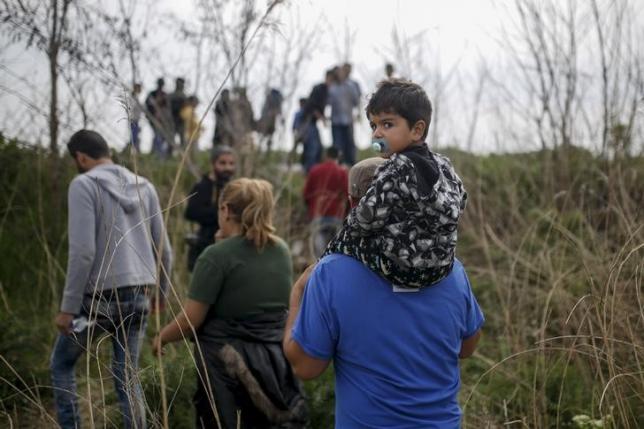The United Nations has proposed that its member countries create and agree upon a predictable international system to share responsibility more fairly for the hundreds of millions of refugees and migrants around the world.
The global compact would be accompanied by a U.N.-led campaign to combat the xenophobia and racism that have tainted discussions of the refugees and migrants, U.N. officials said at a briefing to release a report on the global migration.
The report was written in preparation for a high-level meeting in the General Assembly on Sept. 19 to address the issue of large movements of refugees and migrants. That meeting will be followed by a summit organized by U.S. President Barack Obama, where world leaders will be asked to pledge money in response to the problem.
The U.N. estimates there are 19.6 million refugees worldwide – a 24 percent increase over 2000 – and another 40 million people displaced inside their own countries. Of the refugees, 86 percent live in developing countries, often near the countries they came from, it says.
In 2015, the number of international migrants and refugees reached 244 million, a 41 percent increase over 2000.
The campaign would attempt to counter an increasingly negative attitude and tone in debates over how to deal with the crisis, the U.N. said.
“I am concerned at the increasing trend of member states to erect fences and walls,” U.N. chief Ban Ki-moon said in the report. “Xenophobic and racist responses to refugees and migrants seem to be reaching new levels of stridency, frequency and public acceptance.”
“One of the thoughts behind what we were doing was to change the narrative on refugees and migrants because part of what’s happening now is that people are afraid they’re terrorists or they’re criminals or their taking their jobs,” said U.N. Special Adviser on the Summit on Addressing Large Movements of Refugees and Migrants Karen AbuZyad. “The goal of the report is to create a better response to large movements of refugees and migrants for the benefit not only of those on the move but for those who accept them.”
AbuZyad points out that contrary to xenophobic rhetoric sparked by influxes of displaced peoples, migrants are often the most productive members of society.
“Overwhelmingly the statistics show that refugees and migrants contribute to, make a positive impact as soon as you put them to work and it helps not only your country that has taken them in and it helps with the countries back home, too, because of the questions of remittances and things,” AbuZyad explained.
The report recommends that U.N. member nations vote on two global compacts — one involving responsibility sharing for refugees, with countries asked to resettle at least 10 percent of the global refugee population; and another compact strengthening global governance of migration. It also calls on the U.N. to lead a global campaign to counter xenophobia.
